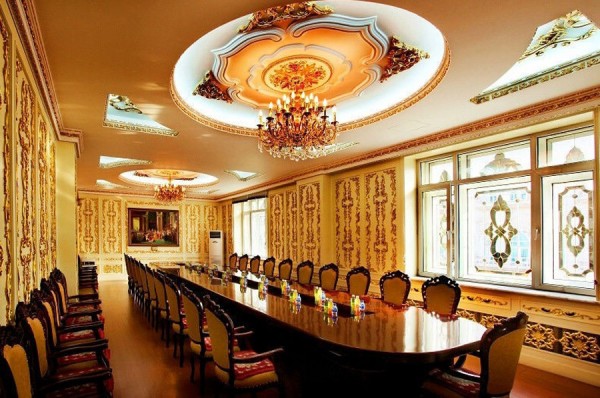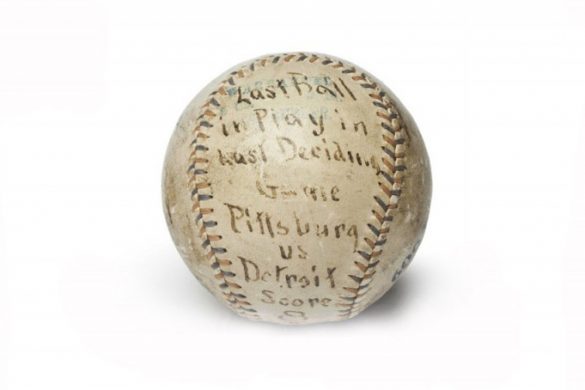Harbin Pharmaceutical Group Sixth Pharm Factory, a China state-owned company, posted recently on its website a set of photographs showing the internal environment (at the plant) with the photographs showing that its building is decorated in the style of Versailles, with fully carved wood corridors, gold foil inlays, and every angel lifelike and unique.
That is of course drew stinging criticism among netizens. A netizen nicknamed Gao Xiaoshuai CC said that the company failed to assume proper social responsibility by spending a fortune to decorate its offices but not protect the environment.
The company is now claiming that photos of the building posted online are part of an internal museum. An unnamed person, who is in charge of the factory’s publicity affairs said the company set up the museum to preserve the fading art of Beidahuang prints, a type of woodblock prints that were developed in Harbin. Even their website was hacked amid anger over the factory’s recent posting of a collection of photographs displaying its palace-like offices of on the site. The homepage of the official site was fully covered by a statement from the hacker.
I have never hacked any website of the governments, enterprises or schools, but I’d like to make an exception this time. I don’t make a living as a hacker and don’t even count this as a challenge, the hacker said. He went on to say in the statement that he grew up in a poor family in the Chinese countryside. I don’t have enough money to go to the hospital or buy any drugs. I can feel a lot of things that many people who can’t feel. Finally, the hacker said: Your chief executive should visit the countryside and the hospitals there. When you go back to your palace, maybe you will have a feeling – a feeling of being on pins and needles.
Harbin Pharmaceutical Group has been under the scrutinous public eye lately. First it was criticized for spending 5 billion yuan ($782 million) per year on advertising, but very little on controlling its water pollution. Then, in late August, one of its bottled water products was found to contain the carcinogenic chemical bromate. [The Wall Street Journal]
















